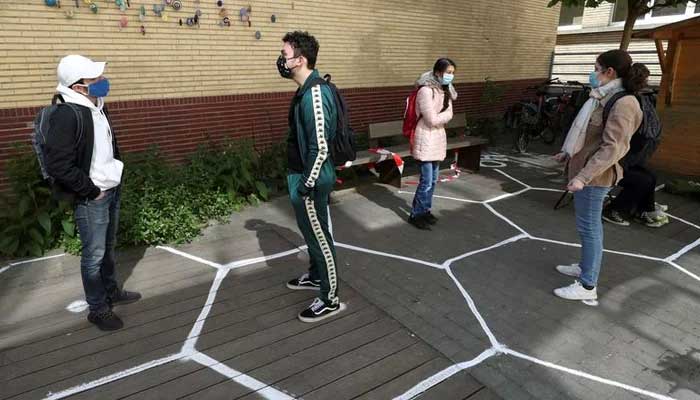Narcissism, psychopathy linked to reduced social distancing during coronavirus outbreak, study suggests
Narcissism, psychopathy, and Machiavellianism are linked to moral disengagement which is tied to reduced social distancing
November 01, 2020

As coronavirus cases around the world continue to balloon, amid what one can argue is the definitive second wave of the contagion, there has been much talk of what behaviours have led to such a sharp rise in infections.
A study, published in October in the Frontiers in Psychology journal, has found that people who do not socially distance themselves are likely to be ones who exhibit narcissism, psychopathy, and Machiavellianism and who morally disengage.
According to PsyPost, which discusses the findings of the study, moral disengagement is "a cognitive mechanism that allows someone to ignore their own sense of moral accountability".
It was found that the "dark" traits of narcissism, psychopathy, and Machiavellianism are all linked to moral disengagement, and that people with such traits are less inclined to observe social distancing.
Read more: Vampire bats observe social distancing when they are sick: study
The study, conducted in Italy, involved 1,520 participants, aged about 35 on average.
The assessments were designed to measure personality traits, proneness to moral disengagement, trust in others, and compliance with the social distancing guidelines.
Narcissism, psychopathy, and Machiavellianism were all found linked to moral disengagement. Those who scored higher on these traits reported less social distancing.
"In line with previous research, those who scored higher on measures of agreeableness and conscientiousness, on the other hand, tended to report greater compliance with social distancing guidelines," reported PsyPost.
The role of trust
The researchers also found that trust in government and trust in people known to them “played a major role” in their results.
People high on Machiavellianism reported lower trust in known others and those high on psycopathy reported lower trust in known others as well as the government.
Greater trust in government was associated with greater social distancing, PsyPost reported, adding that those that trusted the government tended to report a lower average number of daily exits from their home.
The findings shed light on remedies against rule breaking behaviours during national emergencies.
“Trusting others and the government are important elements of the recipe of rule respecting behaviours, as well as the certainty that deviant behaviours will be readily and appropriately punished,” Alessandri said.











